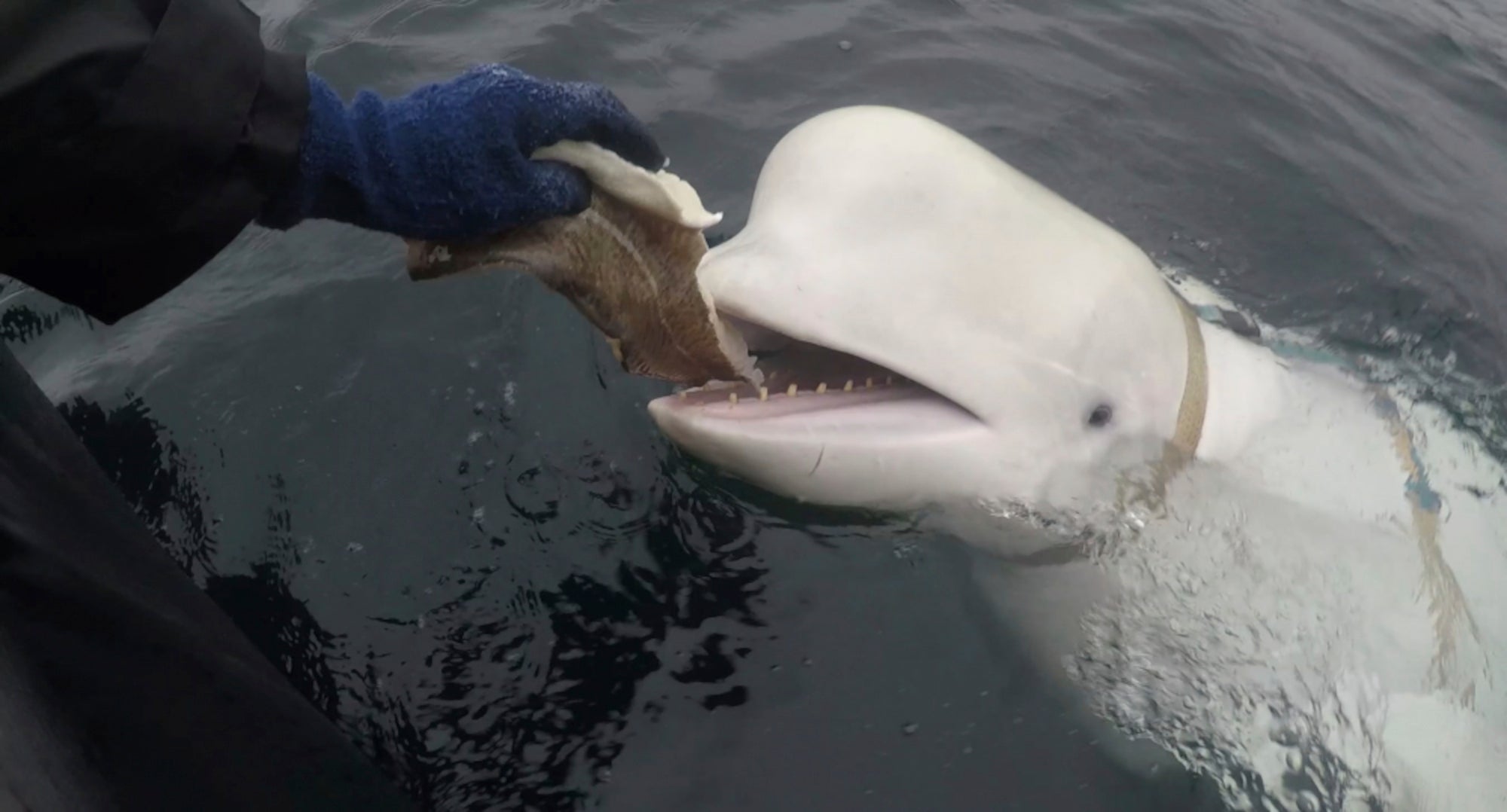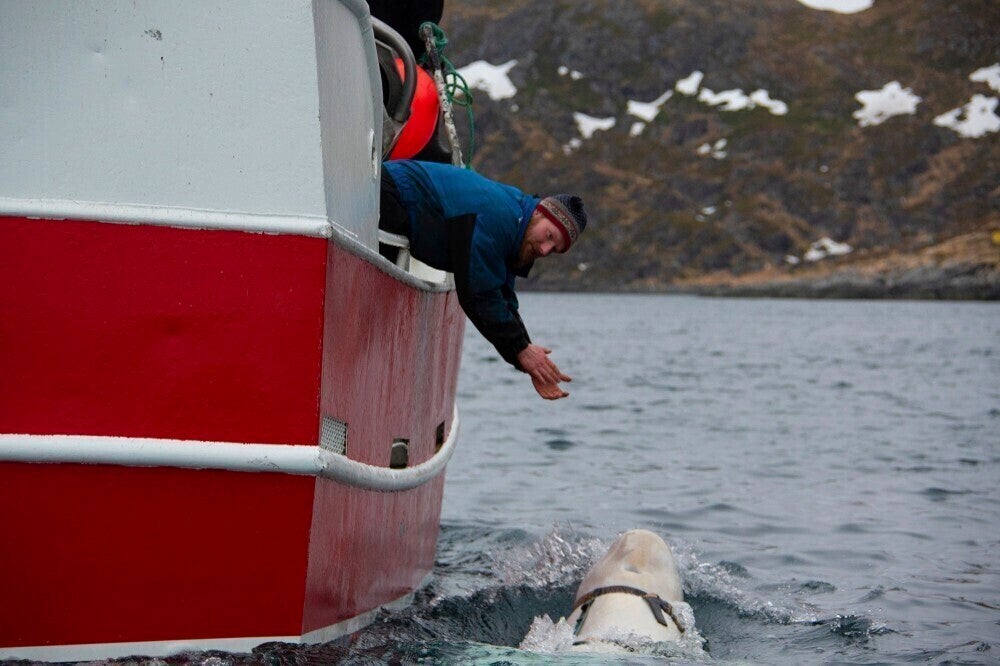Beluga whale suspected of spying for Russia found dead in Norway
Hvaldimir was estimated to be 15 years old – relatively young for a Beluga whale, which can live up to 60

Your support helps us to tell the story
From reproductive rights to climate change to Big Tech, The Independent is on the ground when the story is developing. Whether it's investigating the financials of Elon Musk's pro-Trump PAC or producing our latest documentary, 'The A Word', which shines a light on the American women fighting for reproductive rights, we know how important it is to parse out the facts from the messaging.
At such a critical moment in US history, we need reporters on the ground. Your donation allows us to keep sending journalists to speak to both sides of the story.
The Independent is trusted by Americans across the entire political spectrum. And unlike many other quality news outlets, we choose not to lock Americans out of our reporting and analysis with paywalls. We believe quality journalism should be available to everyone, paid for by those who can afford it.
Your support makes all the difference.A beluga whale suspected to have been trained as a spy by Russia has been found dead off the Norwegian coast.
Nicknamed Hvaldimir, a combination of the Norwegian word hval for whale and the first name of Russian president Vladimir Putin, the animal was described as a spy in the West after it was spotted in Norwegian waters five years ago with a GoPro camera attached to a harness that read “Equipment of St Petersburg”.
Hvaldimir’s carcass was found floating in the Risavika Bay in southern Norway on Saturday by a father and son fishing in the waters, Norwegian public broadcaster NRK reported.
The animal was lifted out with a crane and moved to a nearby harbour for investigation into the cause of its death.
“Unfortunately, we found Hvaldimir floating in the sea. He has passed away, but it’s not immediately clear what the cause of death is,” marine biologist Sebastian Strand told NRK.

Mr Strand, who worked with an NGO called Marine Mind and monitored Hvaldimir’s movement for the past three years, said the whale was in good condition until Friday.
“It’s absolutely horrible,” Mr Strand said. “He was apparently in good condition as of Friday, so we just have to figure out what might have happened here.”
Hvaldimir was estimated to be 15 years old, relatively young for a Beluga whale, which can live up to 60 years.
The animal was first spotted in April 2019 near the island of Ingoya in Norway’s north, about 300km from Russia’s maritime border.
It showed interest in people and responded to hand signals, leading Norway’s intelligence agency to presume that it had been held in captivity as part of a research programme before arriving in Norwegian waters.
“It appeared as if Hvaldimir arrived in Norway by crossing over from Russian waters, where it is presumed he was held in captivity,” Marine Mind said on its website.
It was seen swimming off Sweden’s coast, about 2,000km to the south, last May. It “moved quickly and swam several hundred kilometres” before arriving in waters off Sweden’s west coast.
The Barents Observer, a Norwegian news site, claimed to have used satellite images to identify whale pens near Russian naval bases in the northwest region of Murmansk, the implication being that the country trained marine mammals such as dolphins and whales for military purposes.
Russia has never responded to the allegations.
Join our commenting forum
Join thought-provoking conversations, follow other Independent readers and see their replies
Comments